Speakers
THE ASIAN CENTURY?
FEBRUARY 26, 2010

Martha Nussbaum
Professor, University of Chicago
Martha Nussbaum is the Ernst Freund Distinguished Service Professor of Law and Ethics at the University of Chicago, a chair that includes appointments in the Philosophy Department, the Law School and the Divinity School. She is an Associate in the Classics Department and the Political Science Department, a Member of the Committee on Southern Asian Studies, and a Board Member of the Human Rights Program. She is the founder and Coordinator of the Center for Comparative Constitutionalism.
Martha Nussbaum received her B.A. from NYU and her M.A. and Ph.D. from Harvard. She has received honorary degrees from thirty-four colleges and universities in the U. S., Canada, Asia, and Europe. She has taught at Harvard, Brown, and Oxford Universities. From 1986 to 1993, Ms. Nussbaum was a research advisor at the World Institute for Development Economics Research, Helsinki, a part of the United Nations University. She has chaired the Committee on International Cooperation and the Committee on the Status of Women of the American Philosophical Association, and currently chairs its new Committee for Public Philosophy. In 1999-2000 she was one of the three Presidents of the Association, delivering the Presidential Address in the Central Division. She received the NYU Distinguished Alumni Award in 2000, the Grawemeyer Award in Education in 2002, the Barnard College Medal of Distinction in 2003, and the Radcliffe Alumnae Recognition Award in 2007. She is an Academician in the Academy of Finland. In 2009 she won the A.SK award from the German Social Science Research Council for (WZB) for her contributions to "social system reform," and the American Philosophical Society's Henry M. Phillips Prize in Jurisprudence.
Her recent publications include: Upheavals of Thought: The Intelligence of Emotions (2001), Hiding From Humanity: Disgust, Shame, and the Law (2004), Frontiers of Justice: Disability, Nationality, Species Membership (2006), The Clash Within: Democracy, Religious Violence, and India's Future (2007), and Liberty of Conscience: In Defense of America's Tradition of Religious Equality (2008). From Disgust to Humanity: Sexual Orientation and Constitutional Law and Not for Profit: Why Democracy Needs The Humanities will be published in February 2010 and May 2010, respectively.
http://www.law.uchicago.edu/faculty/nussbaum
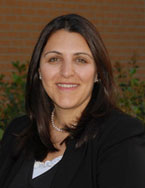
Afra Afsharipour
Acting Professor, University of California, Davis, School of Law
Professor Afsharipour focuses on comparative corporate law, corporate governance, corporate social responsibility, mergers and acquisitions, and securities regulation. Prior to joining the Davis faculty, Professor Afsharipour was an associate in the corporate department of Davis Polk & Wardwell in both New York, NY and Menlo Park, CA, where she advised clients on domestic and cross border mergers and acquisitions, public and private securities offerings, and corporate governance and compliance matters.
Professor Afsharipour served as a law clerk to the Honorable Rosemary Barkett of the Eleventh Circuit Court of Appeals. Professor Afsharipour received her J.D. from Columbia Law School, where she was an articles editor of the Columbia Law Review and a submissions editor of theColumbia Journal of Gender and Law. She received her undergraduate degree from Cornell University, where she studied government, international relations and women's studies.
Professor Afsharipour's recent publications include Integrating the Financial Crisis in the Business Associations Course: Benefits and Pitfalls, 5 J. BUS. & TECH. L. (Forthcoming 2010); Corporate Governance Convergence: Lessons from the Indian Experience, 29 NW. J. INT'L L. & BUS. 335 (2009); Incorporating Business in Business Law Classes, 8 U.C. Davis Bus. L.J. 1 (2007), and Empowering Ourselves: The Role of Women's NGOs in the Enforcement of Women's Convention, 99 Colum. L. Rev. 129 (1999).
https://law.ucdavis.edu/faculty/afsharipour
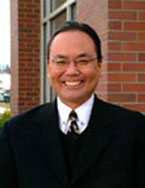
Keith Aoki
Professor, University of California, Davis, School of Law
Keith Aoki focuses on local government law, globalization, and critical theory. Before coming to UC Davis, he taught at University of Oregon Law School, Lewis & Clark Law School, Columbia University Law School, and Boston College Law School.
Professor Aoki received his J.D. from Harvard Law School, where he sat on the editorial board for the Harvard Environmental Law Review and served on the editorial staff of the Harvard Civil Rights-Civil Liberties Law Review. He then practiced law for two years at Hale and Dorr, a Boston firm specializing in technology law.
Professor Aoki focuses his research in the areas of intellectual property and critical race theory. His publications include "(Intellectual) Property and Sovereignty: Notes toward a Cultural Geography of Authorship," which appeared in the Stanford Law Review and "Centering the Immigrant in the Inter/National Imagination" (co-written with Robert S. Chang), which appeared in the California Law Review. He also writes in the overlapping area of local government law and his article, "Race, Space and Place: The Relation Between Architectural Modernism, Modernism, Urban Planning and Post Gentrification" appeared in theFordham Urban Law Journal.
https://law.ucdavis.edu/faculty/Aoki
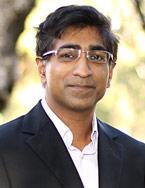
Anupam Chander
Professor, University of California, Davis, School of Law
A scholar of globalization and digitization, Anupam Chander is Professor of Law and Martin Luther King, Jr. Research Scholar at the University of California, Davis. He has been a visiting professor at the University of Chicago, Yale Law School, Stanford Law School and Cornell Law School. A graduate of Harvard College and Yale Law School, he clerked for Chief Judge Jon O. Newman of the Second Circuit Court of Appeals and Judge William A. Norris of the Ninth Circuit Court of Appeals. He practiced law in New York and Hong Kong with Cleary, Gottlieb, Steen & Hamilton, representing foreign sovereigns in international financial transactions. His scholarship has appeared recently in the Yale Law Journal, the New York University Law Review, the University of Chicago Law Review, and the California Law Review.
http://www.law.ucdavis.edu/faculty/Chander
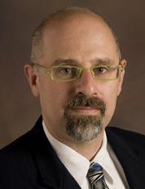
Tom Ginsburg
Professor, University of Chicago Law School
Tom Ginsburg focuses on comparative and international law from an interdisciplinary perspective. He holds B.A., J.D., and PhD degrees from the University of California, Berkeley. One of his books, Judicial Review in New Democracies(Cambridge University Press 2003) won the C. Herman Pritchett Award from the American Political Science Association for best book on law and courts. He has served as a visiting professor at the University of Tokyo, Kyushu University, Seoul National University, the Interdisciplinary Center Herzliya, the University of Pennsylvania, and the University of Trento. He currently co-directs the Comparative Constitutions Project, an effort funded by the National Science Foundation to gather and analyze the constitutions of all independent nation-states since 1789. Before entering law teaching, he served as a legal adviser at the Iran-U.S. Claims Tribunal, The Hague, Netherlands, and consulted with numerous international development agencies and foreign governments on legal and constitutional reform.
His recent publications include: Comparative Legal Institutions (Aspen Publishing 2008) (with Francesco Parisi and Guy Seidman); Rule By Law: The Politics of Courts in Authoritarian Regimes, Editor (Cambridge University Press, 2008) (with Tamir Moustafa); and The Judicialization of Governance in Asia, editor (Routledge Press, forthcoming 2008) (with Albert Chen).
http://www.law.uchicago.edu/faculty/ginsburg-t
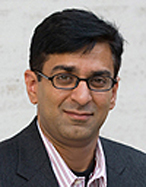
Anil Kalhan
Associate Professor, Drexel University Earle Mack School of Law
Before coming to Drexel, Anil Kalhan was a Visiting Assistant Professor at Fordham University Law School and an Associate in Law at Columbia Law School. He previously worked as a litigation associate at Cleary, Gottlieb, Steen & Hamilton, where he also served as co-coordinator of the firm's immigration and international human rights pro bono practice group. He also has previously worked for the ACLU Immigrants' Rights Project in New York and served as law clerk to the Hon. Chester J. Straub (U.S. Court of Appeals for the Second Circuit) and the Hon. Gerard E. Lynch (U.S. District Court for the Southern District of New York).
He currently serves on the board of directors of the South Asian Bar Association of New York, the national council of advisors for South Asian Americans Leading Together, and the advisory board of the Discrimination and National Security Initiative of the Harvard University Pluralism Project, and is an affiliated faculty member at the South Asia Center at the University of Pennsylvania. He is a member of the Immigration and Nationality Law Committee of the Association of the Bar of the City of New York, and previously was a member of its International Law Committee and International Human Rights Committee. He has been a contributing writer for Dorf on Law, AsiaMedia, and SAJAforum, and was a recipient of a 2008 Journalism Award from the South Asian Journalists Association. Before attending law school, he worked for Cable News Network, the MacNeil/Lehrer NewsHour, and the New York City Department of Transportation.
http://www.kalhan.com/about/
Yong-Sung Jonathan Kang
Assistant Professor, University of Washington School of Law
Professor Yong-Sung Jonathan Kang's teaching and research interests are in the areas of contract law and theory, international business transactions, Korean law, comparative law, and moral and legal philosophy. Professor Kang was born in Seoul, Korea, and grew up in Singapore. He attended Oxford University, where he read Philosophy, Politics and Economics at Jesus College and obtained his degree with First Class Honors. A fluent speaker of Korean and a proficient speaker of Mandarin Chinese, Professor Kang is a magna cum laude graduate of Harvard Law School, where he was Developments Chair of the Harvard Law Review. After law school, he clerked for Judge Robert A. Katzmann of the U.S. Court of Appeals for the Second Circuit.
http://www.law.washington.edu/Directory/Profile.aspx?ID=227
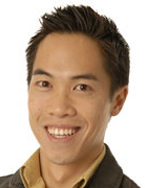
Holning Lau
Associate Professor, University of North Carolina School of Law
Holning Lau teaches family law, children & the law, law and sexuality, and other related seminars. His current research focuses on the law's treatment of non-traditional families, the law's construction and regulation of identity, and international and comparative approaches to equality rights.
With regard to Asia, Professor Lau is currently co-editing, with Professor Po-Jen Yap, a book titled Public Interest Lawyering in Asia (Routledge 2010). Professor Lau's writings on law and sexuality in Asia have appeared in the Harvard Journal of Law & Gender and the Northwestern University Law Review. He currently serves on the board of advisors for the University of Hong Kong's Centre for Comparative and Public Law and for Diversity Factor, a consultancy in Hong Kong.
Professor Lau joined the UNC faculty in 2009, after serving for two years as Associate Professor of Law at Hofstra Law School, where he also co-directed Hofstra's LGBT Rights Fellowship Program. Prior to joining the Hofstra faculty, Professor Lau served as the 2006-2007 Harvey S. Shipley Miller Teaching Fellow at the UCLA School of Law and was affiliated with UCLA's Williams Institute on Sexual Orientation Law & Public Policy. He also served as a visiting fellow at the University of Hong Kong's Centre for Comparative and Public Law. Outside of academia, Professor Lau has worked for the Hong Kong Human Rights Monitor, Children Rights, and the law firm of Debevoise & Plimpton in New York.
Professor Lau received his J.D. from the University of Chicago, where he served as the Executive Topics & Comments Editor of the University of Chicago Law Review and served on the staff of the Chicago Journal of International Law. At the University of Chicago, Professor Lau was named a Stonewall Scholar for excellence in his work related to sexual orientation rights and was awarded the Ignacio Martín-Baró Award for the best human rights paper by a professional or master's degree student. Professor Lau completed his B.A. at the University of Pennsylvania, where he graduated Phi Beta Kappa and magna cum laude.
http://www.law.unc.edu/faculty/directory/details.aspx?cid=1723
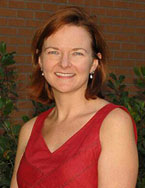
Lisa Pruitt
Professor, University of California, Davis, School of Law
Lisa Pruitt teaches law and rural livelihoods, feminist jurisprudence, legal profession, and torts. Before joining the UC Davis law faculty in 1999, she worked abroad for almost a decade in settings ranging from international organizations to private practice. Given that Pruitt's earlier career involved collaboration with lawyers in more than 30 countries, it is not surprising that a common theme of her research interests is how law and legal institutions manage and respond to cultural difference and cultural change.
Pruitt's recent scholarship considers cultural difference as reflected in the rural-urban binary. She now writes about the intersection of law with rural livelihoods, considering a range of ways in which rural places are distinct from what has become the implicit urban norm in legal scholarship. Pruitt reveals, for example, how the economic, spatial, and social features of rural locales profoundly shape the lives of residents, including the junctures at which they encounter the law or where they may find law absent. Her recent also work considers how rural spatiality inflects dimensions of gender, race, and ethnicity. Whether in domestic or international contexts, Pruitt challenges the association of the rural with the local by revealing the ways in which rural lives and rural places are enmeshed with national and global forces, including legal ones.
Professor Pruitt received her J.D. from the University of Arkansas and her PhD from the University of London (UCL). Her recent publications include Migration, Development and the Promise of CEDAW for Rural Women, 30 Mich. J. Int'l L. 707 (2009); Latina/os, Locality and Law in the Rural South, 12 Harv. Latino L. Rev. 135 (2009); and Spatial Inequality as Constitutional Infirmity: Equal Protection, Child Poverty, and Place, 71 Montana L. Rev. (forthcoming 2009).
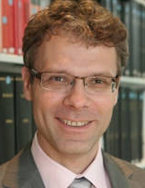
Teemu Ruskola
Professor, Emory University School of Law
Teemu Ruskola is a Professor of Law at Emory University School of Law. Upon graduating from Yale Law School, Professor Ruskola was an associate at Cleary Gottlieb Steen & Hamilton, working in the firm's New York and Hong Kong offices. Thereafter, he completed a master's degree in East Asian Studies at Stanford University. Prior to joining the Emory Law faculty in 2007, Professor Ruskola was professor of law at American University in Washington, D.C. He has been a visiting professor at the Woodrow Wilson School of Public and International Affairs at Princeton University and at Cornell Law School, and he served as a sabbatical visitor at Columbia Law School.
Professor Ruskola is the recipient of several fellowships and awards, including the Law and Public Affairs Fellowship at Princeton University and the Charles A. Ryskamp Research Fellowship with the American Council of Learned Societies. In 2008-2009, he was a member of the Institute for Advanced Study in Princeton, N.J. His scholarship addresses questions of legal theory from multiple perspectives, frequently with China as a vantage point. His publications — appearing in the Michigan Law Review, the Stanford Law Review, and the Yale Law Journal, among other places — explore the intersection of corporate and family law in China, "legal Orientalism" and the history and politics of Euro-American conceptions of sovereignty in the Asia-Pacific.
He is currently working on a book, China, For Example: China and the Making of Modern International Law, which examines the history of the introduction of Western international law into China, and the implications of that process for the theory and politics of international law.
Professor Ruskola is an elected member of the International Academy of Comparative Law as well as a member of the Executive Editorial Board of the American Journal of Comparative Law.
http://www.law.emory.edu/faculty/faculty-profiles/teemu-ruskola.html
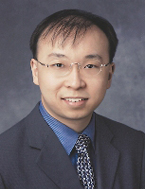
Peter K. Yu
Peter K. Yu holds the Kern Family Chair in Intellectual Property Law and is the founding director of the Intellectual Property Law Center at Drake University Law School. He is also a Wenlan Scholar Chair Professor at Zhongnan University of Economics and Law in Wuhan, China. In summer, he serves as Visiting Professor of Law at the University of Hong Kong Faculty of Law. Before joining Drake University, he founded the nationally-renowned Intellectual Property & Communications Law Program at Michigan State University, at which he held faculty appointments in law, communication arts and sciences, and Asian studies.
Born and raised in Hong Kong, Professor Yu is a leading expert in international intellectual property and communications law. He writes and lectures extensively on international trade, international and comparative law and the transition of the legal systems in China and Hong Kong. A prolific scholar and an award-winning teacher, he is the author or editor of three books and more than 60 law review articles and book chapters. His latest publications include a four-volume reference book set entitledIntellectual Property and Information Wealth: Issues and Practices in the Digital Age (Praeger Publishers 2007).
http://www.law.drake.edu/facStaff/profiles.aspx?profileID=yuPeter

